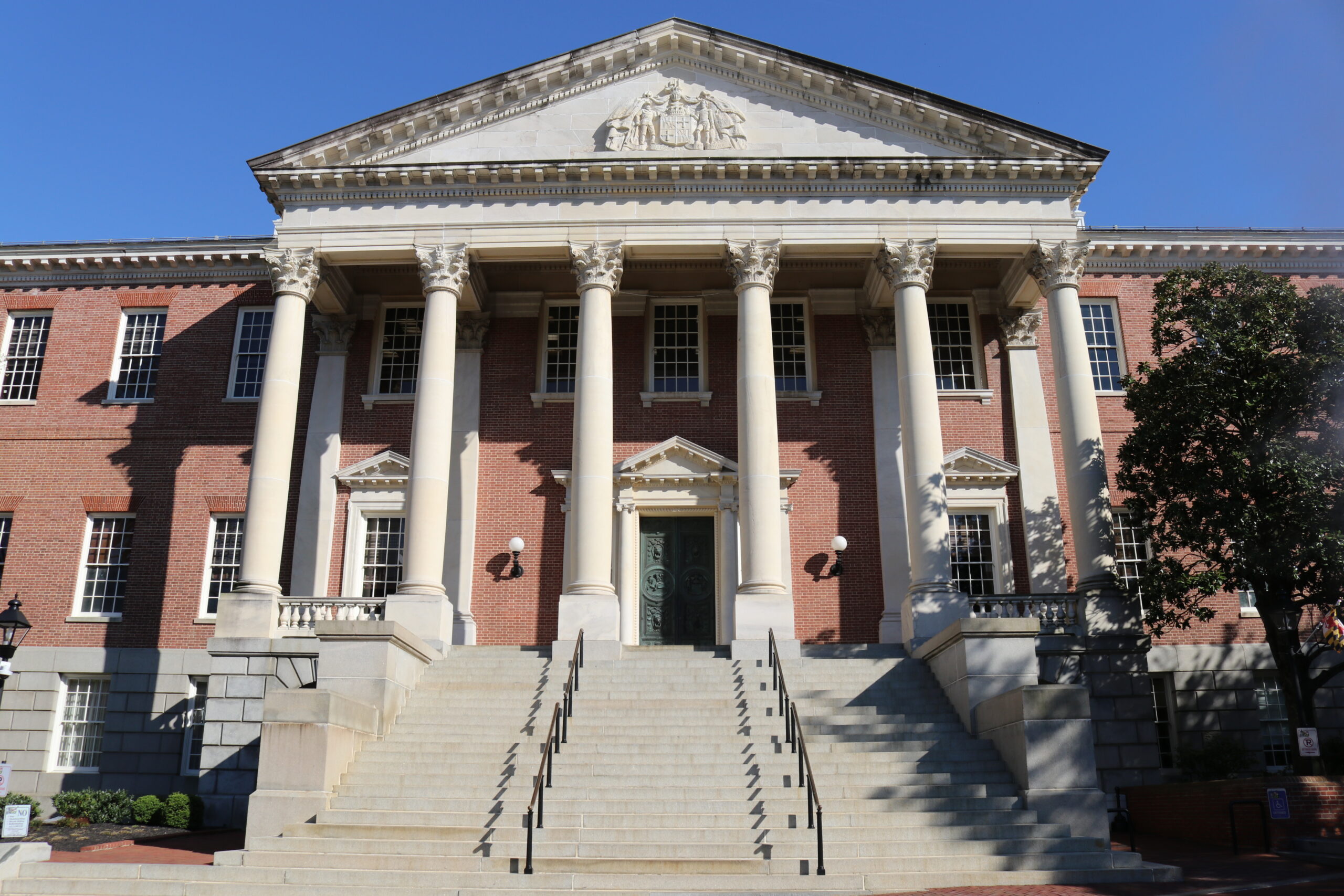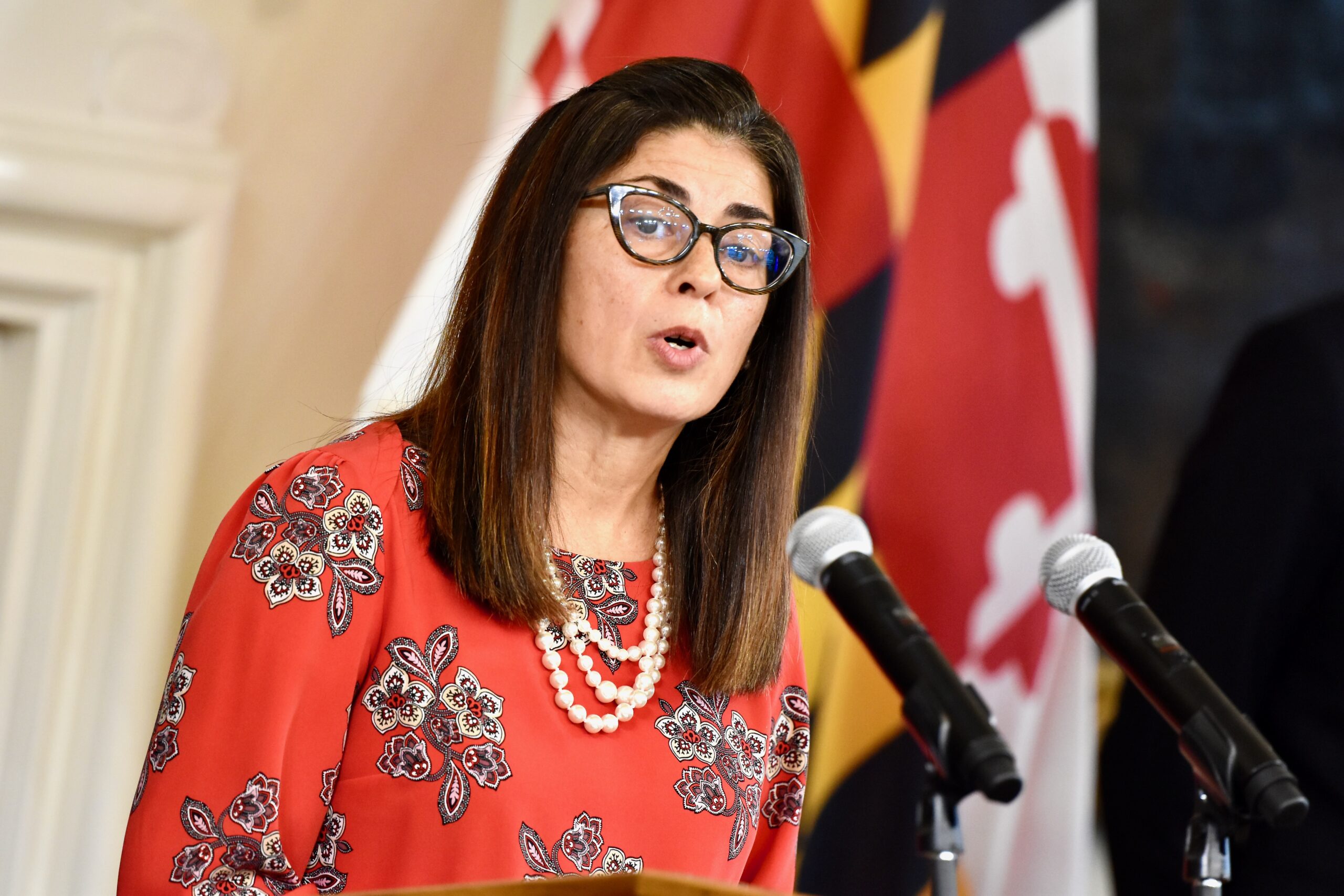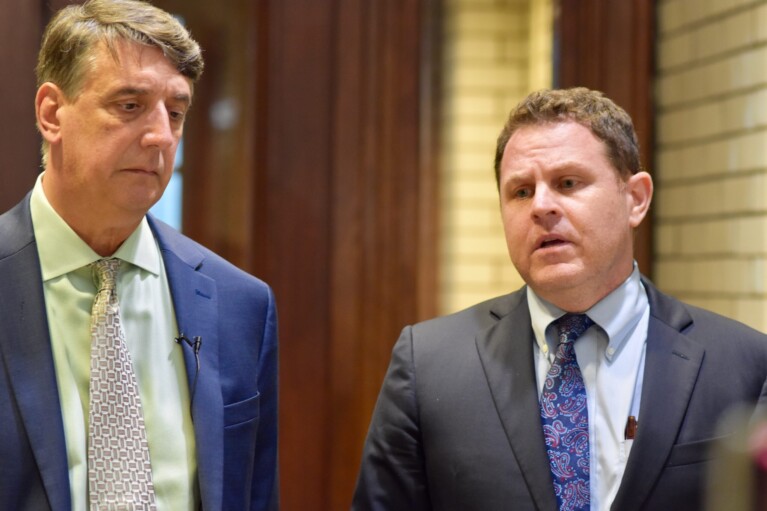Annapolis Reacts to Md. Matters Series: ‘Hungry Kids Don’t Have Lobbyists’

Members of the Maryland General Assembly say they are working on multiple pieces of legislation designed to bolster struggling working families, feed hungry children, close the income gap and put more teeth into the Maryland Public Information Act.
Lawmakers were interviewed over the past several days and asked to respond to problems raised in a seven-part series on childhood hunger in Maryland that was published in Maryland Matters in January. The governor’s office pushed back on some of the reporting in the Maryland Matters series, but provided no response to queries about state policy.
˃˃ Read the full series on childhood hunger.
Lawmakers in both chambers of the legislature said they were looking to address a number of the problems raised in the series even before it was published. They cited a number of societal and bureaucratic factors that contribute to the obstacles faced by Maryland’s poorest families.
 “At a basic level — the root of all of it — is that we’ve got a society that’s increasingly unequal and we haven’t done a good enough job providing people a living wage,” said House Majority Leader Eric G. Luedtke (D-Montgomery) in an interview last week.
“At a basic level — the root of all of it — is that we’ve got a society that’s increasingly unequal and we haven’t done a good enough job providing people a living wage,” said House Majority Leader Eric G. Luedtke (D-Montgomery) in an interview last week.
As it seeks to battle income inequality, the American Federation of State, County and Municipal Employees (AFSCME) requested and received a copy of the Maryland food stamp database from Maryland Matters that was used in the series.
Another advocacy group, which asked to remain anonymous, also was given the database. The database showed that over a thousand state, county and municipal employees are also on food stamps — a potential negotiating point between organized labor and Maryland governments.
The General Assembly session this year will see bills on a range of topics touched on in the series, from hunger to compliance with the Maryland Public Information Act (MPIA).
Lawmakers are concerned about providing food assistance to school-aged kids in Maryland and are looking to other states for policy prescriptions. In 2019, California joined 11 other states in enacting legislation that allows students to select school meals of their choosing, whether or not their parents have settled prior debts.
At the federal level, U.S. Sens. Susan Collins (R-Maine) and Tom Udall (D-N.M.) have proposed legislation that would mandate the practice nationally.
Luedtke said that Maryland is “slowly moving” in the direction of implementing programs like the one newly minted in California, citing an increasing number of schools that give kids of all income levels access to free breakfasts.
A former Montgomery County school teacher, Luedtke said that providing meals during school hours doesn’t quash the problem completely.
“When I was teaching I had students who had school lunch on Friday, and the next time they had a meal was school breakfast on Monday,” he said. “And we’re the richest state in the richest country in the world. That’s unacceptable.”
Luedtke several times circled back to the distinction between minimum wage and “a living wage,” saying that it is difficult to feed a family at the current minimum wage, which is $11 an hour in Maryland.
“At root, we just need to do a better job paying people a living wage.”
The majority leader said he sees developing programs that address hunger in schools as a bipartisan issue.
“There is less disagreement between the parties here in Annapolis,” Luedtke said, than in Washington, D.C., but he added that things like public benefit expansion and last year’s fight to gradually raise the state’s minimum wage to $15 has given some Republican lawmakers pause because of cost concerns.
Ultimately, he said that the issue of childhood hunger goes deeper than just pushing legislation for school lunches.
“Hungry kids don’t have lobbyists,” said Luedtke. “You have well-meaning legislators who try to make progress but you know, if we want to see — on a systems-level — like fundamental change in this issue in how we support low-income families and kids, in particular, the public needs to engage a little bit more in it.”
While it may not solve every problem, there is legislation in the works to address child hunger in the state.

Del. Pamela Queen (D-Montgomery)
Del. Pamela Queen (D-Montgomery) is sponsoring a bill this session that would speak directly to the issue of lunch shaming. She said her proposed 2020 bill would provide kids from low-income families with the same meals that those with no debt receive, removing the child from the collection process completely — similar to the legislation in California.
Queen said that sometimes school districts will shame kids whose families owe lunch money by giving them different kinds of lunches, having them wear wristbands — which she described as a “scarlet letter” — or even discussing outstanding payments with the kids themselves.
“This is really just focusing on not singling those kids out until we can get down … a policy that’s universal about how we deal with collection of [debt],” she said.
The legislature is also struggling with a way to blunt the impact of the Trump administration’s pending cuts to the Supplemental Nutrition Assistance Program (SNAP) — food stamps.
In December, the United States Department of Agriculture announced that it would be limiting the food stamp benefits received by childless, unemployed, able-bodied adults to just three months over a three-year period. The policy would be waived for adults over 50, those with children, individuals working or volunteering 80 hours a month, and people living in regions where the unemployment rate is more than 6%.
When this new policy goes into effect in April it is estimated that 30,000 Marylanders will lose their benefits. Last month, state Attorney General Brian E. Frosh (D) entered a multi-state lawsuit to challenge the federal cuts to food assistance programming.
Adding to the problem is that the Trump administration is changing the way unemployment rates are calculated.
According to the law, counties with unemployment rates 20% or more above the national average for a period of 24 months may have the three-month time limit waived. House Appropriations Committee Chairwoman Maggie L. McIntosh (D-Baltimore City) said that Baltimore City, Baltimore County and Howard County were lumped together by the federal government; as a result, the city’s unemployment rate appeared lower — a problem she said could cause 15,000 Baltimoreans to be booted from receiving assistance.
“That’s just an outright trick,” said McIntosh. “It’s a lie that our unemployment rate is that low. It’s not.”
The national unemployment rate as of December 2019 was at 3.5%. According to the Maryland Department of Labor’s website, Baltimore City’s rate in November 2019 — the most recently available statistic — was 4.6%.
Del. Samuel I. Rosenberg (D-Baltimore City) is proposing legislation this session that would create the Food Supplement and Employment Training Program. The bill, Rosenberg said, would help people who will lose their SNAP benefits recoup from “what the Trump administration did” by allocating money to provide sufficient job training.
The Maryland Matters series also found that the way aid to Maryland’s poor is calculated is deeply flawed. Each year the state establishes a Minimum Living Level (MLL) that is supposed to ensure a family will have enough money to live on. However, the MLL is far below what experts say is the actual cost of living. Compounding the problem, state law limits what a family can receive to 61% of the MLL.
Luedtke said that he doesn’t recall anyone discussing that 61% ceiling prior to the series’ publication and McIntosh said she hasn’t seen an initiative yet this session to address the Maryland Minimum Living Level.
Queen, who is co-chairwoman of the Economic Stability Workgroup in the House, said she is unsure if legislation will be proposed this session that would reform the Maryland Minimum Living Level “holistically,” but she and her colleagues on the workgroup are looking to address factors that contribute to it, like better coordination among government agencies and assessing the cost of services that poor people utilize.
“The economic stability workgroup is looking at what we kind of call the ‘benefits cliff,’” she said. “What does it take for folks to be able to rise up, rise above that cutoff point and still be able to live in our state?”
Lawmakers are also proposing to reform the way the state handles Maryland Public Information Act (MPIA) requests.
When Maryland Matters filed an MPIA request for the state’s food stamp database, the Hogan administration ignored the law that requires the government to respond within 30 days after it receives a request. The state finally responded and made the data available when Maryland Matters filed a lawsuit.
Bills have been filed in both the House and Senate that would amend MPIA law. Dels. Brooke E. Lierman (D-Baltimore City), Erek L. Barron (D-Prince George’s) and Michele Guyton (D-Baltimore County) and Sen. Christopher R. West (R-Baltimore County) have proposed complementary bills that would address agency accountability and the length of time it takes for records requests to be returned, among other issues.
“I’m a big believer in government,” said Lierman. “I think that government has the power to reduce barriers and, you know, create opportunity, but it doesn’t work if people don’t believe that it’s working for them.”
“The PIA in Maryland is one of the most important parts of being a transparent government,” she added.
In the Senate, West has focused on the amount of time it takes to process and deliver requests. As Maryland’s law stands currently, state agencies have 30 days to file their response to any request. He is looking to cut that time down significantly.
“A local reporter in Baltimore County came to me and said, ‘This is wrong. We need a shorter time for this,’” West said. “I took a look at it and I said, ‘You’re right. It is wrong.’”
West, who said he was “ambitious” in his initial proposal, is still in the process of figuring out what the appropriate amount of time will be.
The Hogan administration
The governor’s office has declined to comment about the substance of the child hunger series. But Michael Ricci, director of communications, has pressed vigorously for “corrections” to the account of how the Hogan administration ignored a Maryland Public Information Act (MPIA) request by Maryland Matters and its nine-month battle to get Maryland’s food stamp database.
The story detailed how the state failed to legally respond to a December 2018 MPIA request for information on the food stamp database within the 30 days required by law until Maryland Matters filed a lawsuit four months later.
In two emails to Maryland Matters after the series was published, Ricci complained that the Department of Human Services (DHS) “was not given the chance to comment on or respond to allegations made.” Ricci refused requests for a follow-up interview.
He then argued that “the thesis that the administration ‘set up’ a blockade is not proven,” even though the Hogan administration did not respond to the PIA request until after Maryland Matters hired an attorney and filed a lawsuit.
Ricci argued that an email acknowledging receipt of the MPIA request from a DHS employee constituted a response.
“In the story you say ‘it wasn’t until four months later…that anyone responded,’” Ricci argued. “That was an egregious distortion.”
But the law is clear: An acknowledgement of an MPIA request does not meet the legal requirements for a response. “The custodian shall grant or deny the application promptly,” the law states, “but not to exceed 30 days after the receipt of the application.”
Ricci also conflated a request by a Maryland Matters reporter for help finding information about the Temporary Cash Assistance (TCA) program on the DHS website with the legal battle to obtain the food stamp database. TCA and food stamps are different programs.
He wrote “The e-mail traffic shows she followed up, provided some information that you later called ‘helpful.’” However, the email Ricci included shows the DHS giving directions on how to navigate the DHS website to find “Statistical Reports” and in another email the reporter thanks the DHS employee for her help in finding the TCA data.
Finally, both Ricci and an official from DHS said that the reason the reporter could not reach anyone to complain about the handling of the MPIA was because, “Mr. Jaspin was calling a phone number that did not belong to our agency.”
The phone number being called was found by an attorney for Maryland Matters on the Maryland Attorney General’s website. It is listed as the number to call at DHS for matters involving MPIA requests and is specifically listed as the contact number for DHS’s public information officer. What Ricci says is an “incorrect number” is still the one listed on the Attorney General’s website.
Ricci did acknowledge that “this matter could have been better handled by DHS” but he did not explain what had been or mishandled or what steps the administration was taking to improve the handling of MPIA requests.
He also declined a request to address the substance of the issues raised in the seven-part series.




 Creative Commons Attribution
Creative Commons Attribution